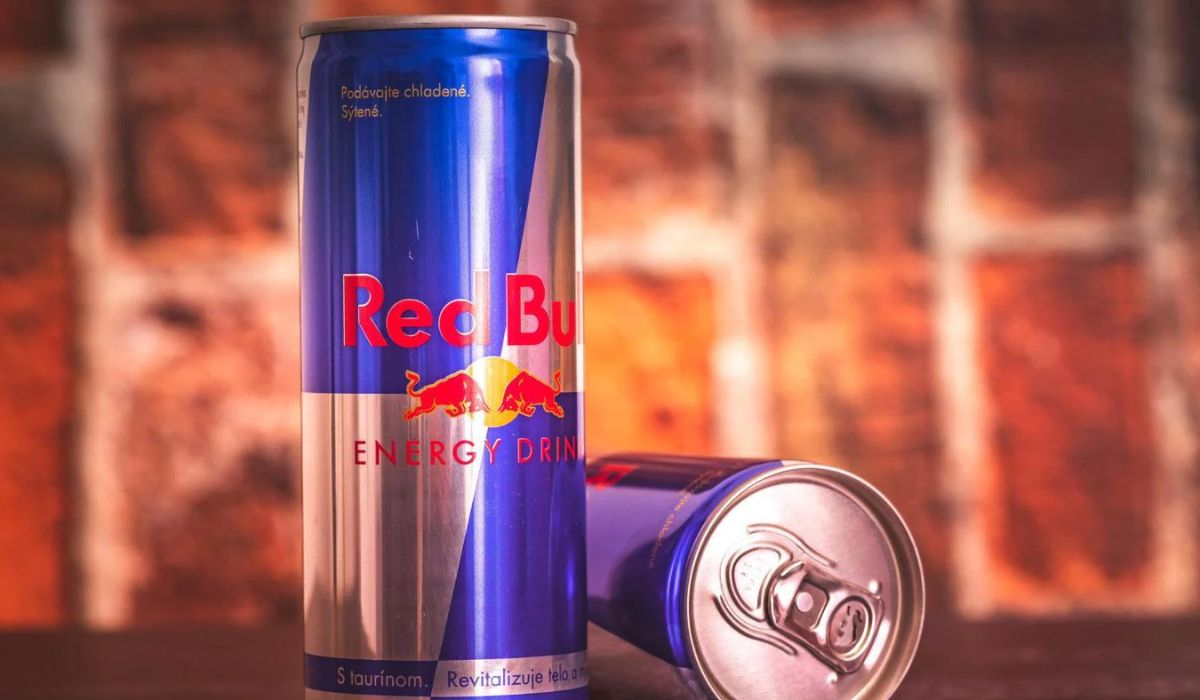
Ever wondered what gives Red Bull its wings? Well, you're not alone! Millions around the globe reach for that iconic silver and blue can for a quick energy boost. But what's really in this popular energy drink, and how does it affect your body? Red Bull's nutrition facts might just surprise you. From its caffeine content to the sugar rush, and the mysterious 'energy blend,' we're diving into the nitty-gritty of what makes Red Bull tick. Whether you're an avid consumer or just curious about what you're sipping on, understanding these facts could change how you view your next can. Ready to get the lowdown on Red Bull? Let's crack open the can of facts!
Key Takeaways:
- Red Bull contains caffeine, taurine, B-group vitamins, and sugars for a quick energy boost. However, it's important to drink it in moderation due to its calorie and caffeine content.
- Red Bull can enhance physical performance and reaction time, but it's crucial to limit consumption to 400mg of caffeine per day and consider healthier alternatives like green tea.
What's Inside a Can of Red Bull?
When you crack open a can of Red Bull, you're not just getting a jolt of energy. You're consuming a blend of ingredients designed to boost your performance, concentration, and metabolism. But what exactly are these ingredients? Let's break it down.
- Caffeine – A key component, caffeine stimulates the central nervous system, helping to improve alertness and concentration.
- Taurine – An amino acid that supports neurological development and helps regulate water and mineral salts in the blood.
- B-group Vitamins – Including niacin, pantothenic acid, B6, and B12, these vitamins aid in energy production within the body.
- Sucrose and Glucose – These simple sugars provide immediate energy, fueling your body when you need a quick boost.
- Alpine Water – The water used in Red Bull is sourced from the Alps, known for its high quality.
How Does Red Bull Affect Your Energy Levels?
Ever wonder how Red Bull gives you wings? It's all about the combination of ingredients that work together to enhance energy levels and improve mental performance.
- Immediate Energy – The sugars in Red Bull, sucrose and glucose, offer a quick source of energy, allowing your body to react swiftly when tiredness strikes.
- Sustained Alertness – Thanks to caffeine, Red Bull can help maintain alertness over a longer period, making it a popular choice for students, drivers, and anyone needing to stay focused.
Is Red Bull Good for Your Health?
While Red Bull can offer a temporary energy boost, it's crucial to consider its effects on your health, especially with regular consumption.
- Calorie Content – A single can of Red Bull contains about 110 calories, mainly from sugars, which can add up if you're not careful.
- Caffeine Overload – Consuming too much caffeine can lead to nervousness, irritability, insomnia, and in some cases, heart palpitations.
- Sugar Levels – High sugar intake is linked to various health issues, including weight gain and an increased risk of type 2 diabetes.
Can Red Bull Improve Physical Performance?
Athletes and fitness enthusiasts often reach for a Red Bull before a workout, but does it really help?
- Increased Endurance – Studies suggest that the caffeine in Red Bull can enhance physical performance by increasing endurance and delaying fatigue.
- Improved Reaction Time – The stimulating effects of caffeine can also improve reaction times, which is beneficial in sports and activities that require quick reflexes.
How Much Red Bull Is Safe to Drink?
Moderation is key when it comes to consuming energy drinks like Red Bull.
- Daily Limit – Health experts recommend limiting caffeine intake to about 400 mg per day for most adults, which equates to around 4 cans of Red Bull.
- Individual Tolerance – It's important to listen to your body, as some people may be more sensitive to caffeine and sugar than others.
- Alternatives – For those looking for a healthier energy boost, consider natural alternatives like green tea, which offers a gentler increase in alertness without the high sugar content.
Sipping on Knowledge: Red Bull's Nutritional Profile
Well, there you go! We've flown through the highs and lows of Red Bull's nutritional facts, giving you the lowdown on what's inside that iconic can. Whether you're reaching for a boost to power through your study sessions, fuel a late-night gaming marathon, or just need that extra kick to get through the day, knowing what you're sipping on is key. From its caffeine content to the sugar levels and the buzz about taurine, we've covered the essentials to help you make informed choices. Remember, moderation is crucial, and while Red Bull can give you wings, it's also important to balance your energy needs with a healthy lifestyle. So next time you crack open a can, you'll not just feel the energy surge but also be armed with the facts.
Frequently Asked Questions
Was this page helpful?
Our commitment to delivering trustworthy and engaging content is at the heart of what we do. Each fact on our site is contributed by real users like you, bringing a wealth of diverse insights and information. To ensure the highest standards of accuracy and reliability, our dedicated editors meticulously review each submission. This process guarantees that the facts we share are not only fascinating but also credible. Trust in our commitment to quality and authenticity as you explore and learn with us.


